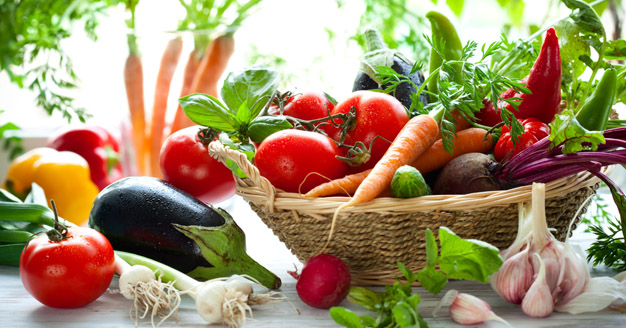Healthy Diet Reduces Cancer Risk by 75% in Study

Conventional wisdom tells us that diet affects about 35% of cancer. But this study completely overturns that wisdom. Women who ate a very healthy diet achieved a stunning 75% reduction in cancer mortality. What was so special about their diet? They were getting an uncommonly high amount of flavonoids. But not from anything exotic. These women were living in Australia and their main sources of flavonoids were all commonly eaten foods. That means virtually anyone should be able to replicate this amazing result by eating a similar diet.
Flavonoids – Key Anti-Cancer Compounds in Our Diets
So what exactly are flavonoids? They are natural compounds produced by plants in their leaves, fruits, seeds, stalks etc. Flavonoids are powerful antioxidants but their roles in the human body go far beyond quenching free radicals. They can boost immunity, improve brain function and slow down hardening of the arteries, to name just a few known functions. But the most important function is their ability to suppress—and even outright kill—cancer cells. Not only has this ability been observed in hundreds of lab studies, but many human population studies have linked flavonoid consumption to lower cancer risk. Flavonoids are found in low concentrations in many common foods but only a few “super sources” contain high enough amounts to make a difference to health. Some examples are tea (catechins), apples and onion (quercetin), beans and nuts (proanthocyanins), berries (anthocyanins) and spinach (kaempferol). The key question everyone should be asking is: Am I getting enough flavonoids to make a difference to my health? For most people, the answer is no.
Flavonoids: How Much are Needed to Reduce Cancer Risk? (About 800 mg daily)
The women in the Australian study who achieved the 75% risk reduction for cancer were getting an average of 813 mg of flavonoids daily. That’s the highest intake of flavonoids that’s ever been observed in a dietary study. Just for comparison, the top flavonoid consumers in a similar study from the USA were only getting 518 mg daily (and they only achieved a 19% risk reduction for cancer). But those were the best in the study. According to another nation-wide survey, the average American only gets 190 mg of flavonoids in their daily diet. That explains why so many studies fail to find a link between flavonoids and cancer risk. They simply aren’t getting enough to make a difference. So, where were the Australian women getting all their flavonoids from?
Flavonoid Superfoods – How Much do We Need?
If your first thought is that those ultra-healthy Australian women were eating a lot of fruit and vegetables, you would be correct. They were eating 600 grams daily, to be exact (about 1.3 pounds). But surprisingly, the single largest source of flavonoids was black tea. That shouldn’t be ignored since black tea has some important flavonoids (catechins, theaflavin) that are hard to get elsewhere. The next best sources were apples, pears, onions, oranges and fruit juice. There were doubtless many other good sources of flavonoids in the Australians’ diets but the authors of the study didn’t give any further details. For an educated guess we could look to a similar study from the USA which found these high-flavonoid foods to be directly linked to lower cancer risk: blueberries, strawberries, peppers (of any color) and red wine. And as with the Australian study, oranges, apples and tea were also directly linked with lower cancer risk in this American study.
Beyond the core foods mentioned above, it’s virtually certain that the Australian women were eating many other healthy foods to attain their 75% risk reduction of cancer. With such a high level of fruit and vegetable intake, it’s very likely that other contributors included legumes, broccoli family vegetables and leafy greens—which are also all excellent sources of flavonoids. They also offer unique anti-cancer compounds not provided by apples, pears, onions, oranges and black tea. Bottom line: if you want to increase your flavonoid intake, be sure to get them from a wide variety of foods to ensure the best possible protection from cancer.
Sources for this article include:
- http://www.ncbi.nlm.nih.gov/pubmed/25832340
- https://www.ncbi.nlm.nih.gov/pubmed/28606222
- https://academic.oup.com/jn/article/137/5/1244/4664598
DISCLAIMER: All information on this website, including research articles, is for information purposes only and is not meant as a recommendation to buy or use any nutritional supplement, healthcare product or service of any type. Ethan Evers does not provide medical advice directly or through recommended or linked materials, articles etc. All matters regarding your health require medical supervision and advice from an appropriately licensed medical practitioner.





